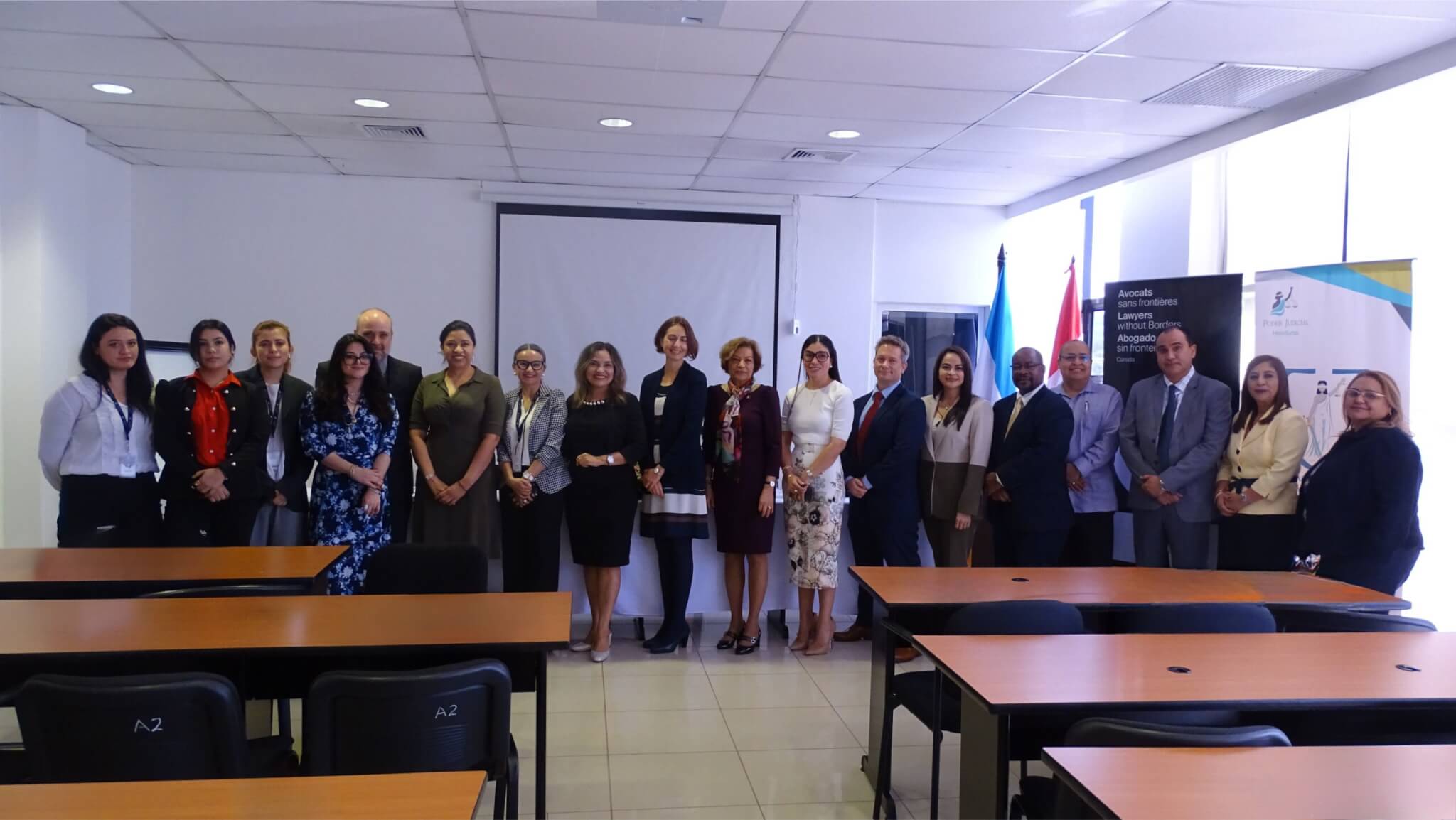
Group photo of the Magistrates of the Supreme Court of Justice, Dr. María Díaz Crego, staff from other relevant areas of the Judiciary and Lucas Valderas from Lawyers Without Borders Canada. Credits: LWB Canada 2024
On October 14, the Judicial School of Honduras hosted the event “Keynote Conference and Presentations on Gender Perspective and Intersectionality in Legal and Academic Training.” The aim of the event was to foster discussions on the challenges facing the justice system, with the goal of providing effective responses to the needs of women and girls who are victims of violence. It sought to ensure their rights to truth, justice, and reparations are upheld.
The event, organized by Lawyers Without Borders Canada, the Judicial School and Department of International Relations and Human Rights of the Supreme Court of Justice, brought together over 40 judicial professionals who explored the integration of gender perspective in legal training and practice in Honduras. Dr. María Díaz Crego, a legal expert from the Spanish Constitutional Court, served as the guest speaker, while Justices Rubenia Galeano and Isbela Bustillo of the Supreme Court also contributed to the discussion. Attendees included presiding judges and members of the Constitutional, Civil, and Criminal Chambers.
In Honduras, women and girls face significant barriers when seeking justice. These obstacles restrict their full access to justice and contribute to a sense of revictimization, as they often feel blamed and held responsible for their experiences at home, as described by a recent study by the Centro de Derechos de Mujeres.
Lucas Valderas Martos, country director for Lawyers without Borders Canada in Honduras, emphasized that overcoming such challenges “requires sustained efforts to promote responses that, from a gender perspective and an intersectional approach, place equitable access to justice and effective protection of the rights of women and girls at the center of public service.”
The event marks the beginning of a week of training, during which members of various teams from the Supreme Court of Justice will deepen their understanding of existing international standards and explore best practices that illustrate how a gender-sensitive approach can enhance the quality of rulings and promote gender equity. These activities are part of the Judicial Branch of Honduras’s efforts aligned with the new Strategic Plan to integrate a gender perspective into the delivery of justice services. This will be achieved through training, awareness-raising, research, and specialized dialogue with the public, led by the newly established Gender and Justice Observatory.
This activity was made possible with the support of Global Affairs Canada, as part of the project “Justice, Governance, and the Fight Against Impunity in Honduras.”
On the same subject: